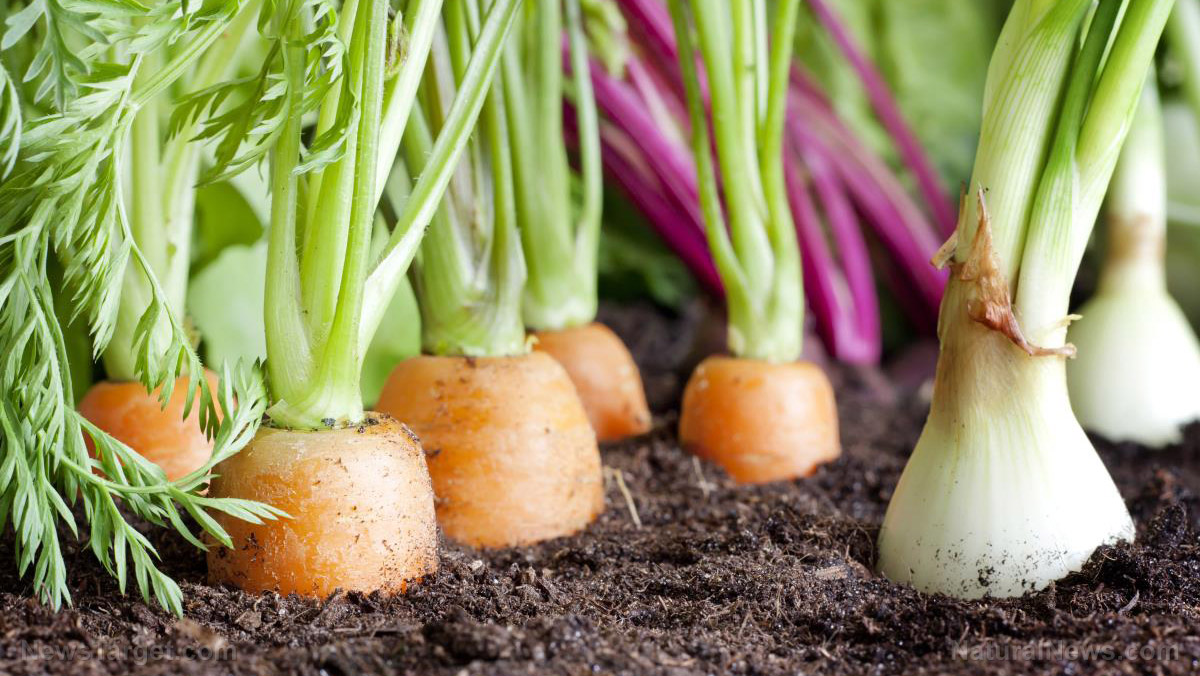
Advertisement
Much like how maintaining balance is the key to your body’s health, maintaining balance is also the key to healthy soil. An oversupply of nutrients can be just as bad as a deficiency of nutrients. Both of these can interrupt the natural processes of your soil and make it less suitable for plants. But how do you know whether or not your soil is suffering from a nutrient deficiency or oversupply? More importantly, how do you fix it?
An article on OffTheGridNews.com can answer those problems, as well as the ones created by these four common soil issues.
- Sulfur deficiency and oversupply — Plants need sulfur to produce chlorophyll and to develop resistance to diseases. An absence of sulfur will cause stunted growth, high seedling mortality among your plants, and the yellowing of leaves. Younger leaves in particular will start displaying red veins. Having too much sulfur in your soil is rare. However, when it does happen, your soil will be highly acidic and selenium deficient. Acidic soil is soil with pH levels below 7.0; with the optimal pH range for the majority of plants being between 5.5 and 7.0, acidic soil will be difficult to grow plants in. The best fertilizers for maintaining sulfur balance are compost, compost tea, langbeinite, potassium sulphate, Epsom salt, and gypsum.
- Nitrogen deficiency and oversupply — Much like sulfur deficiency, a deficiency of nitrogen will produce plants with yellow or pale-green leaves. On the other hand, an overabundance of nitrogen will cause excessive foliage growth that lacks flowering and fruiting, stunted roots, leaf browning, and a buildup of mineral salts in the soil. Nitrogen is a vital component of chlorophyll, which in turn makes it important to photosynthesis. To get your soil’s nitrogen levels back in check, add in fertilizer composed of seaweed, bone meal, compost, compost teas, or fertilizers that contain natural sources of urea, ammonium, or nitrates. You could also grow peas, beans and honey locust since these are plants that are known nitrogen fixers.
- Phosphorus deficiency and oversupply — Soil that doesn’t have the right amount of phosphorus will produce plants with poor leaf, root, and shoot growth and leaves that are deep green, red or purple in color. You should also look out for any delays in the maturation of plants, including the fruits and seeds. Excessive phosphorus will cause leaf yellowing, brown spotting and eventually the death of all the leaves. Beneficial fungi will also have difficulty growing in soil with a surplus of phosphorus. The recommended fertilizers for this are those made from straw or wood chip mulch, rock phosphates, fish bone meal, chicken manure, or compost and compost tea.
- Potassium deficiency and oversupply — The most noticeable effects of potassium deficiency will be in the leaves. Plants that don’t get enough potassium will have leaves that turn yellow between the veins prior to browning and then dying, and leaves with curled tips. Purple or brown spots may also develop on the underside of leaves. Other potassium deficiency symptoms will include halted root growth and poor fruit and seed quantity and quality. Poor water filtration, soil compaction, toxic compound production, and calcium shortage are the signs of potassium oversupply. To bring back potassium balance, you need to use fertilizer made out of wood ash, rock minerals, greensand, seaweed, sylvinite, potassium sulfare, langbeinite, or compost and compost teas.
Although it may seem like hard work, ensuring your soil is receiving the proper amount of nutrients will benefit you in the long run.
Read up on more green- and garden-related news by visiting GreenLivingNews.com.
Sources include:
Submit a correction >>
This article may contain statements that reflect the opinion of the author
Advertisement
Advertisements
















